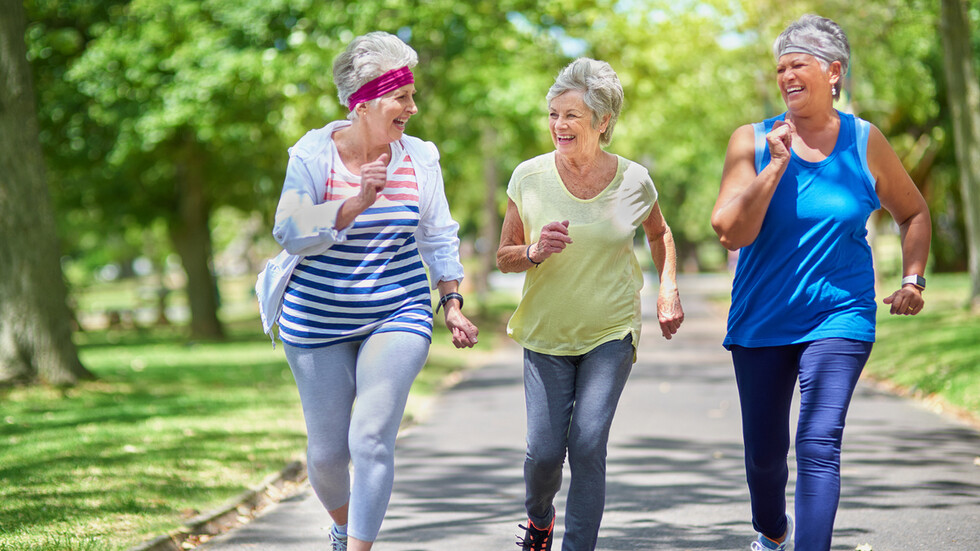Hydrogen-rich water positively affects exercise capacity in overweight middle-aged womenScientific Research

Hydrogen-rich water positively affects exercise capacity in overweight middle-aged women
Ostojic SM, Korovljev D, Stajer V, et al.
28-day hydrogen-rich water supplementation affects exercise capacity in mid-age overweight women. Med Sci Sport Exerc 2018;49(5):S606
Abstract
Molecular hydrogen (H2) improves body composition, metabolic profiles, and mitochondrial function in obese women, but no studies have yet evaluated the effectiveness of hydrogen H2 in improving exercise capacity in this population. The authors investigated the effects of a 28-day supplementation with 1 L per day of hydrogen-rich water (HRW) on exercise capacity and quality of life in overweight middle-aged women. Twelve women (aged 53.8 ± 13.0 years, BMI 28.8 ± 3.3 kg/m2, VO2max 22.3 ± 3.7 ml/kg/min) participated in this randomized, placebo-controlled, crossover , a repeated measures intervention study. All participants were assigned in a double-blind design to receive two randomly assigned trials: the first group received 1 L per day of HRW hydrogen water (delivering ~9 ppm H2), while the second group received a placebo (tap water). Participants were assessed at baseline and after 28 days of intervention. The primary endpoint was change in cardiorespiratory endurance (VO2max) assessed at baseline and at 28-day follow-up. Secondary outcomes included change from baseline to end of treatment in work ability scores, impact of weight on quality of life (IWQoL), and hematologic biomarkers. Participants were asked to maintain their usual lifestyle, dietary intake and not use any other nutritional supplements during the study. The HRW hydrogenated water intervention significantly improved VO2max compared with placebo at 28-day follow-up (26.2 ± 4.8 ml/kg/min vs. 24.2 ± 4.1 ml/kg/min; P = 0, 03).Differences were found in time to exhaustion and total work completed during additional exercise, with HRW leading to an improvement in both variables compared with placebo (P < 0.05). IWQoL scores and hematological markers were not affected by either intervention (P > 0.05).
The results
suggest that HRW can be used as an alternative hydration formula to positively influence exercise performance in middle-aged overweight women.
Hydrogen-rich water positively affects exercise capacity in overweight middle-aged women
Ostojic SM, Korovljev D, Stajer V, et al.
28-day hydrogen-rich water supplementation affects exercise capacity in mid-age overweight women. Med Sci Sport Exerc 2018;49(5):S606
Abstract
Molecular hydrogen (H2) improves body composition, metabolic profiles, and mitochondrial function in obese women, but no studies have yet evaluated the effectiveness of hydrogen H2 in improving exercise capacity in this population. The authors investigated the effects of a 28-day supplementation with 1 L per day of hydrogen-rich water (HRW) on exercise capacity and quality of life in overweight middle-aged women. Twelve women (aged 53.8 ± 13.0 years, BMI 28.8 ± 3.3 kg/m2, VO2max 22.3 ± 3.7 ml/kg/min) participated in this randomized, placebo-controlled, crossover , a repeated measures intervention study. All participants were assigned in a double-blind design to receive two randomly assigned trials: the first group received 1 L per day of HRW hydrogen water (delivering ~9 ppm H2), while the second group received a placebo (tap water). Participants were assessed at baseline and after 28 days of intervention. The primary endpoint was change in cardiorespiratory endurance (VO2max) assessed at baseline and at 28-day follow-up. Secondary outcomes included change from baseline to end of treatment in work ability scores, impact of weight on quality of life (IWQoL), and hematologic biomarkers. Participants were asked to maintain their usual lifestyle, dietary intake and not use any other nutritional supplements during the study. The HRW hydrogenated water intervention significantly improved VO2max compared with placebo at 28-day follow-up (26.2 ± 4.8 ml/kg/min vs. 24.2 ± 4.1 ml/kg/min; P = 0, 03).Differences were found in time to exhaustion and total work completed during additional exercise, with HRW leading to an improvement in both variables compared with placebo (P < 0.05). IWQoL scores and hematological markers were not affected by either intervention (P > 0.05).
The results
suggest that HRW can be used as an alternative hydration formula to positively influence exercise performance in middle-aged overweight women.



